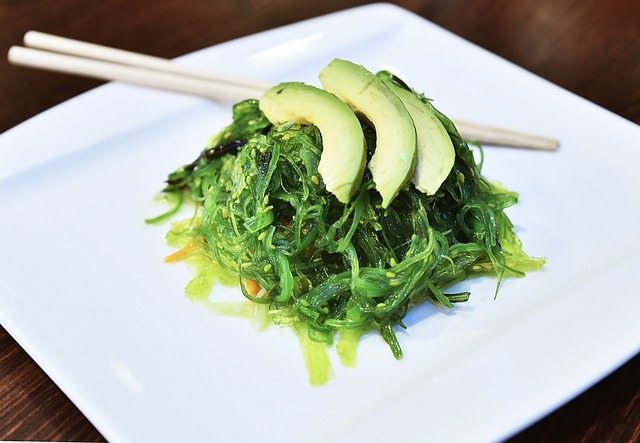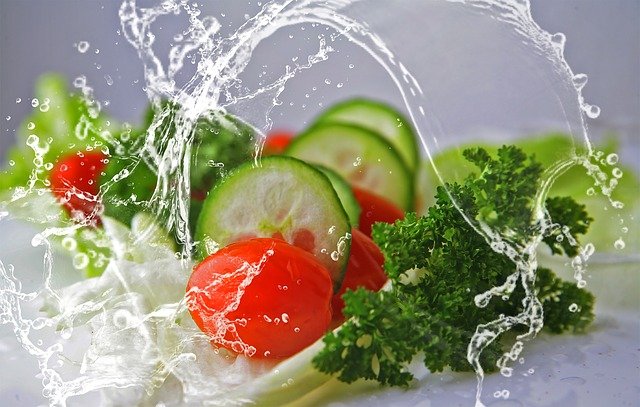Almost many people suffer from an excess of cholesterol in the blood and must follow an adapted diet. Not always easy or pleasant to hold, but rewarding when you manage to lower your rate without medication.
Summary
- Less saturated fat and more fibre to lower cholesterol
- Moderate alcohol, regular physical activity
- How to keep your commitments?
- Use phytosterols when the diet is not enough
- Ten tips from experts to lower cholesterol
Your blood tests are formal: you have too much cholesterol. Like you, around 30% of the population suffers from high cholesterol . According to expert medical nutritionists, a large part would simply need a more diversified diet and some lifestyle guidelines. The priority is to adopt a specific diet.
Less saturated fat and more fibre to lower cholesterol
The National Agency for Health Safety of Medicines (ANSES) indicates that the reduction of cholesterol levels “is primarily based on a suitable diet and a healthy lifestyle , a limitation of alcohol consumption, a weight control and correction of excessive physical inactivity ”.
Overall, it is advisable to reduce the intake of cholesterol and saturated fat (contained in meats, cold meats, cheeses, butter, eggs, fried foods, pastries, etc.) in favor of complex carbohydrates (starchy foods, cereals) and fiber (fruits and vegetables).
Moderate alcohol, regular physical activity
There is no need to ban alcohol altogether. Consumed reasonably, a glass or two a day can increase the level of “good” cholesterol (HDL) by 10 to 15%. Drinking more, on the other hand, is obviously harmful.
“Contrary to what one could believe, it is the ethanol [alcohol] of the wine which has a protective effect on cardiovascular diseases, not the polyphenols [antioxidants]”, explains experts.
Obviously, sport is essential to lower your cholesterol level. Moving at least 30 minutes a day also causes a slight rise in this “good” cholesterol (5 to 10%). So walk, pedal, swim, garden: the effect is proportional to the frequency and intensity of physical activity.
How to keep your commitments?
At the cost of constant attention – for a moderate excess of cholesterol – this rate can return to normal without medication. It is still necessary to “hold” on the long course . According to a study of more than 500 people with high cholesterol followed by a doctor, barely 45% of them really adhere to dietary advice and one in two people succeeds in reducing their cholesterol level.
Why is it so difficult? “Doctors are often faced with the resistance of patients to the privations and monotony of dietary advice. Few doctors have the time to study and repeat them, say experts. People integrate big messages, but they lack practical advice on a daily basis . And they are mistaken. “Following the cholesterol guidelines always results in the removal of fat. Cholesterol is a molecule that does not appear in all fats. “
Use phytosterols when the diet is not enough
“You need a graduation in the treatment of cholesterol,” insists experts. The first step, food. Then phytosterols, if the diet is not enough. Because consuming 1.5 to 2.4 g / day of phytosterols reduces LDL (“bad”) by around 10% in people who have too much cholesterol.
“Certain yoghurts, kinds of margarine or salad dressings are enriched with phytosterols. You have to choose them according to your tastes and needs. For example, the need for calcium will shift to yoghurts, and large consumers of butter will turn to margarine; but others will prefer salad dressings. “
Whether it is enriched products or food supplements, do not take it long term: After two to three months of regular consumption, sterols no longer lower LDL cholesterol. Also avoid in pregnant women, in case of vitamin A deficiency or excess sitosterol (a derivative of cholesterol produced by the body) in the blood.
Good LDL cholesterol:
- 2.2 g / l: LDL level not to be exceeded in the absence of a risk factor.
- 1 g / l: LDL level not to be exceeded for a high-risk patient: a history of heart attack, type 2 diabetes, with two risk factors.
Ten tips from experts to lower cholesterol
- Avoid dairy fats: crème fraîche, yoghurt or whole white cheese and cheeses – unless taken in very small quantities (20 g). Prefer 0% yoghurts and white cheeses and skim milk.
- Limit the eggs. Replace the morning boiled egg with a slice of white ham, 0% Fromage blanc or a soy product.
- Avoid deli meats, except lean cooked ham or bacon. Instead of the pie sandwich, try a slice of bread with a mackerel fillet.
- Read the labels to find the “hidden” cholesterol in “egg” preparations (pasta, sauces) or bread enriched with Swiss cheese. Identify the words “egg yolk”, “butter” or “cream” on the packages of cookies, pastries and pastries.
- Do not ban oils from your diet because they do not contain cholesterol. But be sure to limit those that are less beneficial, such as soybean, palm, copra, coconut or grapeseed oil that the liver can transform into cholesterol.
- Enrich your diet with polyunsaturated fatty acids (omega 3): fatty fish, vegetable olive oils, rapeseed, mixed flax. They do not lower cholesterol but are beneficial for the heart and vessels.
- Do not forget to eat a good ration of fibre, at least 250 g of fruit and vegetables per meal.
- Simply compose your meals: a salad of raw vegetables, carrots, beets, lettuce, asparagus, cucumber, cabbage and grated apples… a main dish, a fruit and a little bread. A varied and diversified diet is an opportunity to make the whole organism function properly.
- Do regular checkups, but not excessively because it takes a month to get cholesterol moving. A blood test twice a year is usually sufficient. Also ask for an EKG and fundus to assess the condition of the small arteries.
- Learn to cook to find more pleasure in eating.
ADDITIONAL READ:
The Potato: your ally for the winter
Is meditation suitable for everyone?
Back pain due to osteoarthritis: what relieves



